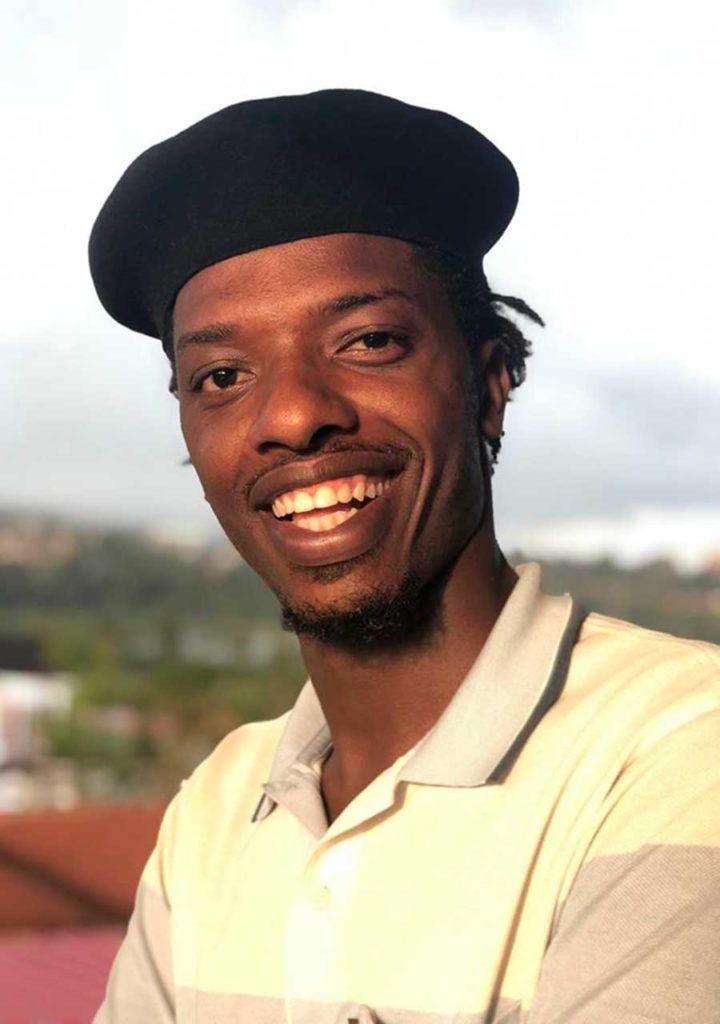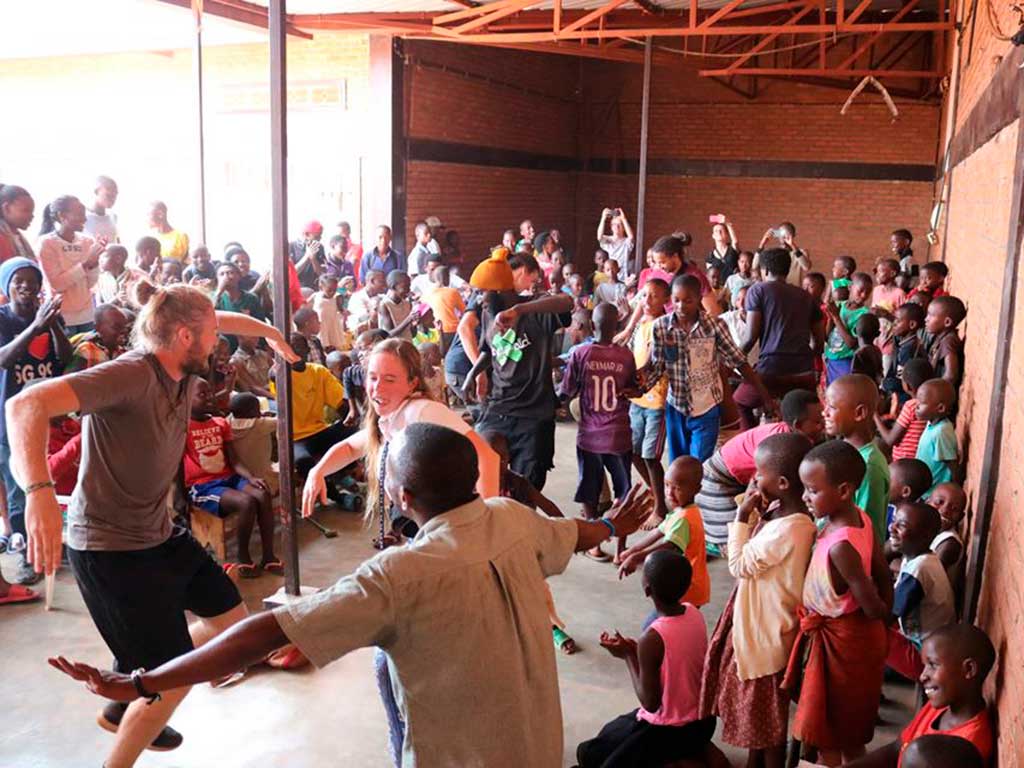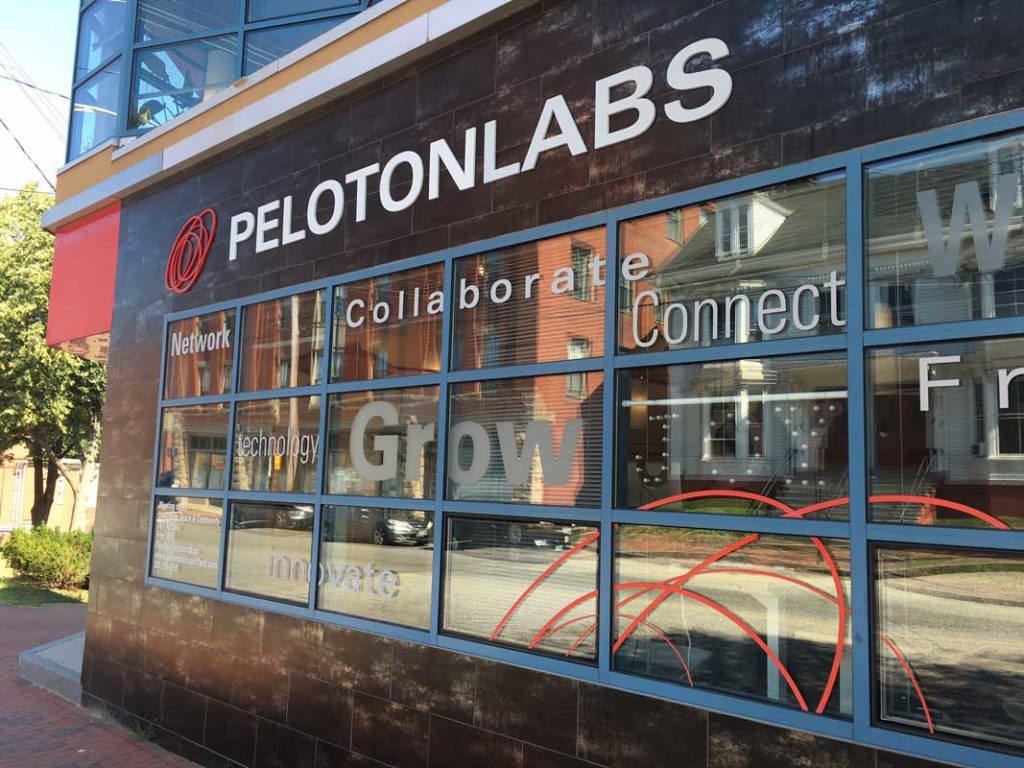
Part 2 of 2: Patrick Kiruhura on asking the right questions to feel connected to our neighbors
Every Month Peloton Labs founder Liz Trice interviews a community member for the West End News. This month is a continuation of Liz’s chat with Kiruhura Babu Patrick, who is founding a new nonprofit in Portland called World Roots Culture Exchange. (Read Part 1: Patrick Kiruhura: Creating an environment for all cultures to thrive)
Last month we talked to Patrick Kiruhura about how we need to understand each other’s nature and cultures to feel connected and to provide value to each other. Patrick, any advice for people who want to get to know their neighbors better?

The biggest problem is we measure people on intellectual level instead of emotional level. So we ask people, ‘What do you do?’ But what really connects people is emotions. Ask them, ‘How are you handling coming to the US?’ instead of ‘Why did you come to the US?’ to connect at a deeper level. Ask, ‘What are the challenges you’re facing? How is your family? How are your children?’ Those are the questions that will create relationships.
In my culture, people ask about me, about my mom, my dad, about my siblings (even if they don’t know if I have any siblings), and when they finish asking this, I become very open to them, because I feel these people really care about me. It’s building a house of information and trust.
The environment that you meet people in is important. If you meet someone on the street, chat, and invite them to have tea in a coffee shop, then you can take another step to invite them to your home or let them invite you to their home to learn more about one another. If you go into someone’s home, they will be very open and give you everything they have to give.
Also, if you want to create relationships between rich people and poor people, the rich person has to seek out the poor person. It’s hard for a poor person to find a rich person, but it’s easy for a rich person to find a poor person. They can humble themselves, and say, ‘I am no different than you.’ Every person is different, so when you’re helping people, don’t put them in a group. Work with them individually.
Do you have family here?
My parents and siblings are in Rwanda, one sister is in Nashville, she has two children and a husband. That’s it for very close family, but when I count my family, I count eight generations. I may say this great-great-grandfather had seven women, and they had this many boys and girls… If you count that, I have a lot of family members in the U.S. I know the whole family tree…
This might blow your mind: I have several family groups on What’s App – one that includes all my cousins and aunts and uncles up to my grandfather, one up to his father (my great-grandfather), and another up to his father (my great-great-grandfather) and so on. I have one family group of over 800 people. If I was about to host a wedding, I might host over 1,000 people, because my wife’s family is included, too, and everyone in our family group will contribute money to the wedding, even if they don’t come. It is a responsibility. If someone dies, or if someone goes to hospital, or if a family can’t afford school for a child, a request goes out, and everyone donates something. It’s like crowdfunding. It’s really organized.
You know your family back eight generations? That’s amazing! I don’t even know all my cousins! Are you getting messages all the time from hundreds of people?
Yes, my What’s App is very busy! See, you can see this message here: thirty people are contributing money, one five dollars, another twenty dollars, twenty dollars, twenty dollars. All to solve community problems. If you are lucky to get connected to one of our culture members, you get connected to all of it. And if I have a home, it is not my home, it is the home of the family. If someone is coming to Maine, someone says, “Patrick lives there,” and I will give them everything they need. Only after they have rested and ate, I would ask, ‘How did you get my name, and how are you connected?’
I had a German friend, and she was made part of my family, too. The foundation of our culture is dependency and family based. We care about togetherness. If you come to my family, and my mom works a lot to cook you a lot of food, the biggest offense would be to say, “Thank you for feeding me.” Because you didn’t value her for who she is, but rather what she gave you. The food is just the environment she created so that she could connect with you. The food is nothing, the house is nothing, it’s just a tool to create a relationship with you.
What are the needs of your community at this time?
Before you help someone, ask them to share with you what they need. Take the time to learn about people, and then help them figure out how to function within your environment.
I believe my life is different from yours because of culture. Culture is tradition and laws. The first thing I need to function in the U.S. is information about the laws and the traditions. If I don’t have that, I will be criminalized. The second thing is to help people have a language, so we can share value with each other. The third thing, and last thing, is to help them find a home.
People are naturally very good! But if I function just like you, then my value is lost. So, you have to help people keep their identity, let people have the space to do it their way, free their creativity. Then, if you give them money, they will add more money to you and your community. The thing that has helped me be successful is that I create platforms for people to create their own solutions.
What are some of your ideas to let cultures get to know each other in Maine?
Maine is a family. No matter what roots we come from, we still have to live in the same house, and if it rains, it’s going to rain on the whole house.
I’m trying to create a space, a platform, that brings all the elements of Maine together. A Mainer is a Mainer because of all the elements that are there together. In order to be fully comfortable in Maine, you need to know a few of the cultures you are living with. Meet a few Congolese people, a few Chinese, et cetera. You have to spend time outdoors, and time in the city with people of different cultures from yours.
I would like to create an Intercultural Maine Center for all the cultures in Maine to have a point of meeting to learn from one another, to celebrate our differences and participate in making Maine a home for everyone.
Host backyard bonfire events with music from musicians from different backgrounds. We did this weekly at Root House in Rwanda, which was a coworking space, mini hotel, and cafe.

Create an app to match older people to younger people who can provide services. I think during this pandemic would be a good time to do that.
We could create local experiences where people of different backgrounds can take you to visit their world right here in Maine for a day.
Create tours where you stay with a family in their home country, so you understand what it’s like to live in their culture.
We can create a space that has food, crafts, music, and events from many different cultures.
I’m looking for partners for all of these.
If you like his ideas, you can reach Patrick Kiruhura at kiruhura01@gmail.com.

PelotonLabs is a coworking space in the West End of Portland, Maine with a mission to connect and encourage people working on their own to manifest their visions without fear.






1 Comments
Pingback: Patrick Kiruhura: Creating an environment for all cultures to thrive - The West End News